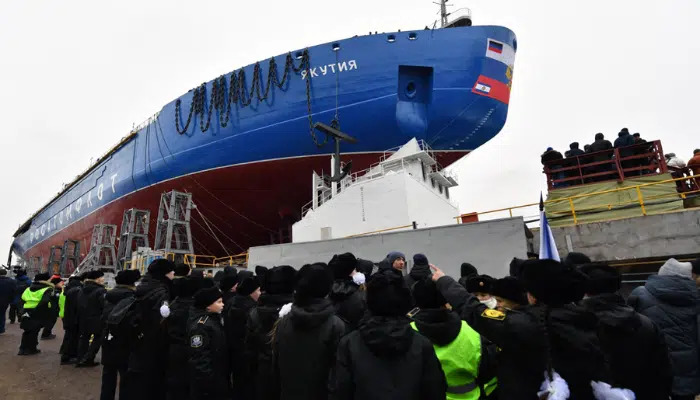Wherever sanctions on smugglers, trade, and Western restrictions on Russia are no exception, smuggling takes on dangerous forms on a planet where every vessel can be kept track of from the heavens. Some commercial ships have started disguising their sailings by manipulating the automatic identification system (AIS), the global shipping tracking setup that aids vessels in preventing collisions, delays, and other risks.
And Russian navy vessels have been jamming other vessels’ AIS. Such location manipulation subverts sanctions. More alarmingly, it places other ships at risk. But the more the West’s sanctions bite, the higher are the chances of Russia likely to adopt the techniques that North Korea, the veteran sanctions-buster, has pioneered.
There is a likely answer to the whereabouts of Kapitan Schemilkin: The tanker is manipulating its automatic identification system (AIS). The AIS is an advanced location transmission system used by commercial vessels to ensure that other containers know where they are. For over two decades, it has been mandatory for passenger ships and tankers beyond 150 gross tonnages, vessels over 300 gross tonnages to sail between nations and boats that exceed 500 gross tonnages and sail domestically. All commercial passenger and cargo vessels must use AIS.
The system helps relevant authorities keep track of vessels in waters; in fact, the AIS originates in the Exxon Valdez’s dangerous oil spill off the Alaska coast, which convinced the US Coast Guard it required improved tracking abilities. Since then, the AIS has become an indispensable source of knowledge for crew members, shipping firms, maritime-intelligence companies, and government authorities.
Vessels, however, may not want the locations to be disclosed. Such dark trips are taking place along the naval channel to the Caspian Sea from Iran, where AIS gaps have been exceptionally high over the past months. As AIS gaps can happen due to poor coverage or lousy weather, repeated gaps over the journey suggest the vessel has something to keep a secret—in this case; it is most likely some arms deliveries to Russia. Dark vessels pose a safety risk because other ships can see them via binoculars or when incredibly close.
Some vessels, though, go a step further and manipulate the AIS, which is what the Kapitan Schemilkin seems to be doing. An NGO named the Global Fishing Watch uses satellite imagery to keep track of harmful fishing practices, reported that the AIS-transmitted movements of Kapitan Schemilkin in 2022 did not match the satellite imagery of the tanker’s sailings. From January to August this year, the vessel was missing from six locations per its AIS transmissions.
North Korea, a seasoned specialist in sanctions, flouting, has been receiving desired goods on ships that either turn off their AIS or manipulate it.
On any standard vessel, the AIS is programmed in a manner that it transmits the details of the ship using its maritime mobile service identity [MMSI], a code that is associated with the boat, mentioned James Byrne, an analyst of North Korea’s unlawful logistics network who has been directing the Royal United Services Institute’s Open-Source Intelligence and Analysis assignment.
Since not even sanctions-flouting captains desire to risk accidental collisions, vessels that can change AIS transmit correct signals as they travel via busy waterways such as the English Channel.
Russia’s naval vessels, in the meantime, have resorted to interfering with other vessels’ AIS, which contains a portion of GPS. In June last year, Russia’s navy ship manipulated the AIS of a Dutch and British naval vessel to make it appear near Sevastopol in Crimea when it was in Odesa.
In the Baltic Sea, Russia reportedly interfered with navy vessels’ AIS of Sweden, making it look as if they, too, were near the coast of Russia. In 2017, crew members on over 20 commercial ships sailing in the Black Sea discovered AIS locations not remotely near where they knew the vessels were. A boat was reflected as being at some airport.
AIS manipulation matters because it undermines sanctions and also creates risks on the high seas. A collision between a rule-abiding vessel and one with falsified locations could have significant consequences. Luckily, large ships are more difficult to disguise than smaller ones—but a minor collision could also be disastrous.
Source: Hellenic Shipping News






